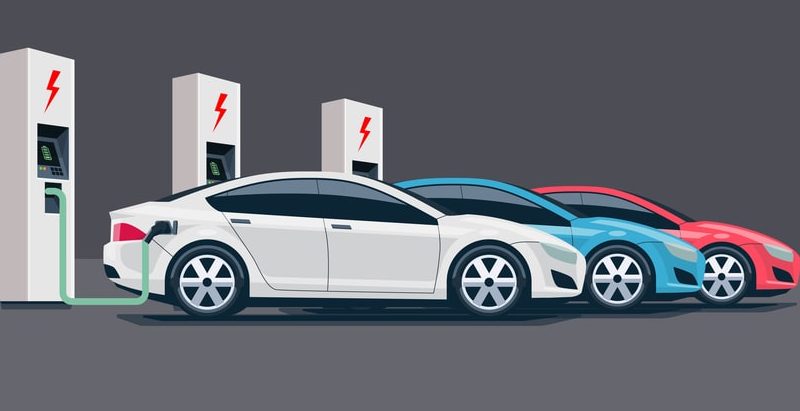Advantages Of Installing EV Charging Station At Business
With the growing popularity of electric vehicles, a slew of infrastructure changes have emerged, ranging from merchants installing EV charging stations beside client parking to EV charging stations for enterprises.
With goals like guaranteeing that the majority of the new vans and cars be electric, this is the best time for businesses to evaluate which EV charging options as Commercial EV chargers will best suit their specific needs.
Which Business Require EV Charging Stations?
Different companies might have to evaluate the necessity for EV charging stations at their offices in different ways. Consider the following scenario:
- Commercial EV chargers will be required by businesses having an electric corporate fleet, like a logistics company, to support large numbers of corporate-owned vehicles.
- Workers who drive electric vehicles to work might need electric charging facilities in office building complexes. In the United Kingdom, 75 per cent of electric vehicle owners are not able to charge their vehicles at the workplace.
- Leasing companies that sell electric vehicles would need to make sure that there is enough charging available so that electric vehicle models could be tested and displayed.
- Companies that are built on individuals using a fleet of independently owned electric vehicles, such as a taxi company, could benefit from providing electric vehicle charging on the campus.
- If a firm has company vehicles and wants to become electric, it would need to have electric management as well as charging in hand.
Commercial Advantages Of Electric Vehicle Charging Stations
1. Attract clients
Electric Vehicle drivers might need to halt for several hours to recharge their batteries. Having an electric car charger has been shown to increase foot traffic among this demographic.
2. Get your company on the social map
Electric vehicle users use apps like Zap-Map to find charging stations, and your company could be acknowledged publicly if you like. EV drivers stopping by to charge are prone to look into your company’s offerings because they have time to spare.
3. Expand your customer base.
Smart Electric Vehicle charging allows drivers to interact with the business when they stop to charge, allowing businesses to learn more about their customers and perhaps communicate special offers, enhancing the possibility of repeat visits.
4. Provide what your competitors don’t
Many Electric Vehicle drivers would want to be able to charge their vehicles when they shop. As a result, providing charge points might lead to you being chosen over competitors. With several businesses striving to be competitive with online offers, providing a great shopping experience has become increasingly vital.
5. Reduce your carbon footprint to promote a green business effort.
In 2019, the average carbon dioxide emissions of vehicles sold in the United Kingdom increased for the third year in a row. Furthermore, government statistics reveal that transportation accounts for 34percent of the United Kingdom Carbon dioxide emission, having vehicles accounting for the majority. If the United Kingdom is to meet its net-zero aim by 2050, it will take a massive cross-industry push to promote widespread EV use. It’s critical to keep in account that how firms contribute to these efforts is being closely scrutinised.
6. Clients and staff must be attracted and retained.
Installing an Electric vehicle infrastructure in hand displays an active approach to development as well as a modern culture – and it could tip the scales in terms of attracting and maintaining great talent. If you electrify your fleet, the government has recently introduced tax breaks for employees who use business Electric Vehicles for private use, which is a tremendous benefit for both existing and new staff.
7. Ensure that your brand values, as well as CSR obligations, are upheld.
If the brand or CSR policies emphasise sustainability as well as green business endeavours, the lack of electric car charger installations would sabotage those efforts, leading to a loss of brand credibility.
8. Revolution is on the way, so it pays to be prepared.
The push-on businesses to modernise their infrastructure is mounting with the implementation of low as well as ultra-low emission zones, as well as an eventual ban on new petrol and diesel vehicles and vans. As the Electric vehicle industry expands, widespread acceptance and the demand for charging stations as standard in workplaces is not far off. Businesses could obtain a competitive edge by being ahead of the curve, and they can presently make use of existing workplace incentive programmes to build charging stations.




